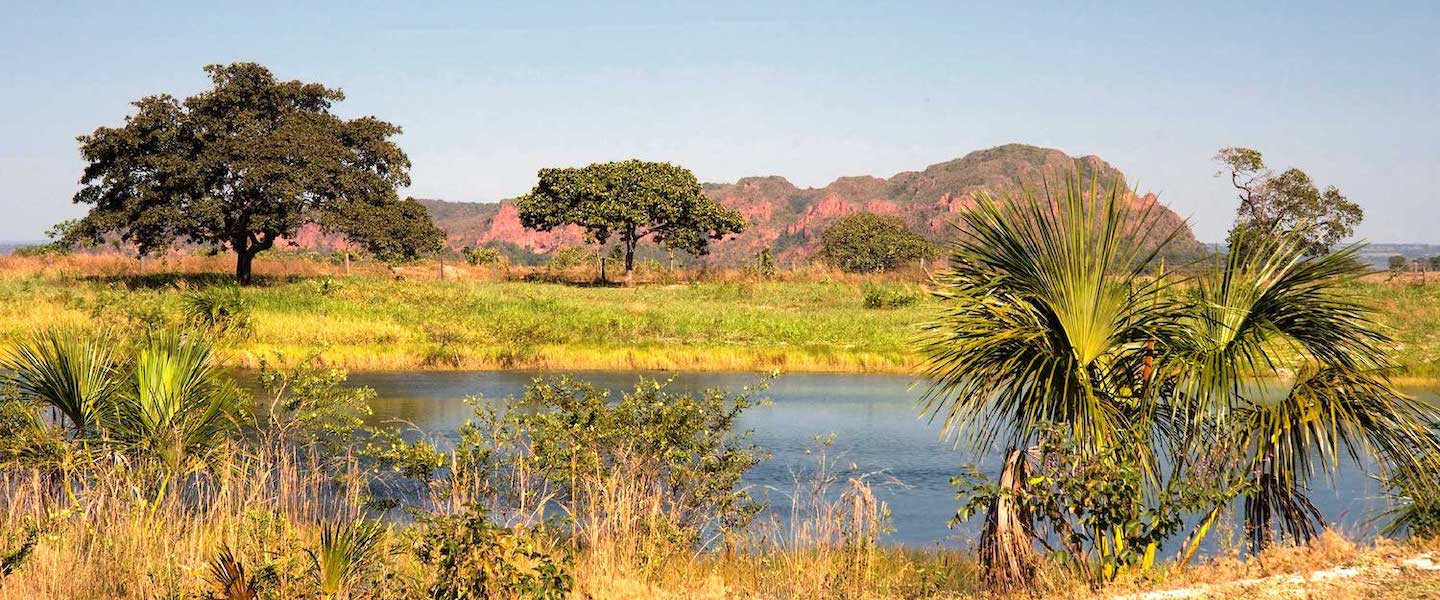Sourcing soy sustainably: our new approach for clients


At Standard Chartered, we recognise the importance of protecting all forests and the communities who live in and depend on them. We also recognise the potential conflict between the need to improve living standards and support economic development; and the protection of the environment. We are committed to both. Our approach is to work with clients and communities in order to support livelihoods while ensuring that the environment on which we all depend is protected.
In 2018, we introduced a strict requirement that we will not finance clients who convert or degrade forests – in effect our commitment to ‘no deforestation’. For us, the impact on climate change and loss of biodiversity from deforestation is clear: forests absorb and store carbon in trees and soil and contain critically important plant and animal species. Protecting them is of paramount importance.
We are concerned about the unnecessary destruction and land conversion of important biospheres for agriculture and commodity farming such as the Cerrado region of Brazil. We believe having strong sustainability practices and on-the-ground implementation are critical to managing these issues – ensuring we support sustainable economic development.
Our aim is to influence positive change in this region, recognising the current limitations on the traceability of soy. After many months of research and engagement with industry bodies, clients, NGOs and our peers we have decided to amend our approach to the Cerrado. Rather than stop financing all soy from the Cerrado, we will now only support clients that have the strictest ’no-deforestation’ or ‘land-conversion’ policies, backed up by public ambitions and reporting towards full traceability.
“Standard Chartered has adopted a strong and leading position within the banking sector on commitments and action around deforestation and land clearance related to soy cultivation in the Cerrado biome. We are pleased to see this sort of leadership, which we hope inspires others in the financial community to follow suit and look forward to continuing to work with them in developing sustainable soy supply chains. “
The Cerrado region of Brazil covers 2 million square kilometres (about the size of Germany, France, England, Italy, and Spain combined) and is the most biologically diverse savanna on Earth, home to around five per cent of the planet’s animals and plants. Farming activity here serves as the backbone for local economies and 46 million inhabitants, which includes several indigenous groups, who rely on natural products from the Cerrado to make various goods to support their livelihoods.
There is no doubt, however, that agriculture, such as the rapid expansion of soy production, is having a huge negative impact on local vegetation.
The Cerrado’s soy supply is of critical importance for both Brazil, and the world. Last year Brazil was the second largest producer of soy in world (behind the US) with 122 million metric tons, which is exported to markets such as China, the EU and India.
Over the last year we have been working closely with some of our key commodity trading clients, whose business we support through offering import and export credit facilities, to better understand the soy supply chain. From this it is clear that there is currently no practically feasible way to distinguish soy from the Cerrado from soy sourced elsewhere in Brazil at the point of export.
We believe this is a gap that should be addressed. Traceability is key to ensuring that soy production from the Cerrado does not create further deforestation or conversion of high conservation value land. There is enough already-converted land in the Cerrado to meet growing global soy needs for many years to come. We have therefore concluded that our efforts should be focused on supporting responsible clients to drive such traceability and work with partners to do that.
We therefore revised our approach so that only the most forward-thinking and sustainability committed clients would meet our criteria.
As above, we will only support clients who source, process and trade soy originating from the Cerrado – but only if they meet our stringent criteria.
We will work with our clients, with their immense buying power and strong systems and processes, with the aim of bringing about real change on the ground. Each of our clients has made individual commitments against further land conversion of the Cerrado and protection of native vegetation, and, collectively, we know by supporting them we can play our part to stop the unnecessary destruction of this critical habitat whilst maintaining the global supply of soy.
We also believe that no single sector can solve these problems alone and that a multi-stakeholder approach is key to success. That is why we have signed the Statement of Support for the Cerrado Manifesto and are exploring partnerships with regards to enhancing traceability. We also require that our clients play an active role in multi-stakeholder initiatives or commitments to protect the Cerrado region and its people.
We recognise that not all our clients have 100 per cent traceability over their supply chains today. However, we know that targeting full traceability is part of the solution and that is why we are also setting a requirement that all our clients must work towards this goal.
We are aware that some may question our revised approach and prefer we continue to apply a total boycott to Cerrado soy. However, we believe we have an opportunity to improve outcomes for the Cerrado through our financing.
We are committed to playing our part in protecting the Cerrado from any future land conversion and believe we can work with like-minded clients to protect this unique biosphere.
Click here to read the updated Agribusiness Position Statement on Soy.